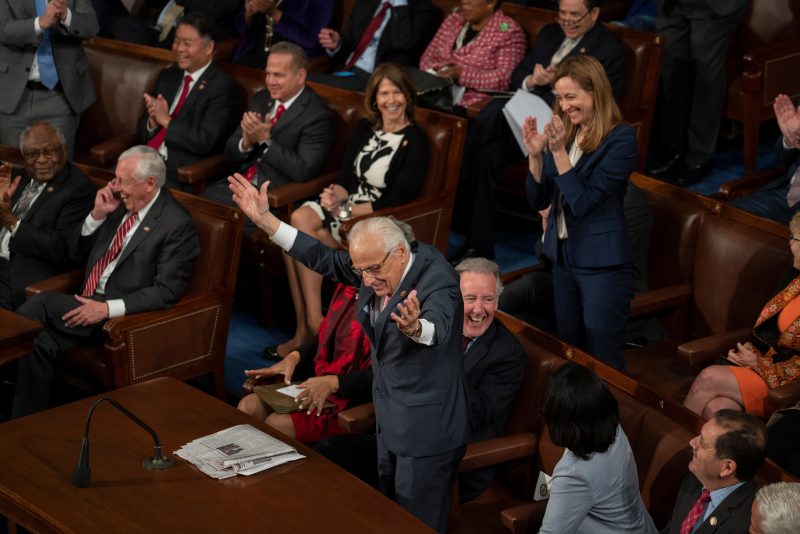Evidently, a wave of transformation has been stirring within the Democratic party. With the retiring of key figures such as Representative Bill Pascrell of New Jersey and other seasoned lawmakers, the power dynamics have notably shifted, leaving the fate of the party to a new generation of vibrant, diverse Democrats teeming with fresh ideas and perspectives.
Bill Pascrell, a stalwart in the House of Representatives, stands as a notable departure. Serving for over two decades, Pascrell, a former mayor of Paterson, New Jersey, has carved a name for himself not just within his locality but across the country. Embodying the traditional Democratic values of supporting working classes, urban rejuvenation and the health sector, Pascrell’s departure signals an end of an era.
The changing of guards has been marked by the gradual fading of the ‘Post-Watergate Democrats’—the elder statesmen who made their mark in the 80s and 90s. Instead, a new generation has come to the fore—a generation marked by their youth, diversity, and dynamism. They come armed with perspectives of grassroots activists, entrepreneurs, military officers, and public servants. It represents a shift from traditional power centers towards a society that demands fresh and innovative ideas.
This transition within the Democratic fold isn’t isolated—it mirrors the greater societal shift within the United States. As the nation grows more diverse, it only follows that its representation in the legislature does too. This new generation reflects this diversity, with more women, people of color, and members of the LGBT+ community finding their seats at the table than ever before.
One noteworthy change is the greater emphasis on bottom-up politics. The new generation of Democrats has often emerged from grassroots movements, carrying with them the aspirations and concerns of everyday citizens. They seek to address issues that affect people on the ground—issues like racial justice, climate change, healthcare, and economic inequality. This shift is seen not just in their rhetoric, but also in their policies and initiatives.
While the infusion of new blood and vigor has invigorated the Democratic caucus, it has also brought along its share of challenges. The new Democratic representatives herald different ideological shards that range from pragmatism to progressivism. Striking unity within this broad spectrum is a challenge that the party has grappled with, leading to public spats and disagreements.
Navigating these choppy waters will not be easy. With every potential decision, there will be tugs of war between various factions, each eager to imprint its brand of Democratic ideology onto national policies. However, these challenges are not necessarily detrimental. They showcase a vibrant, evolving party that isn’t bound by rigid orthodoxies—an attribute that could resonate well with an equally diverse voter base.
The departure of key figures like Bill Pascrell may denote the end of an era, but it also ushers in an era teeming with promise, with fresh faces like Alexandria Ocasio-Cortez, Ilhan Omar, Ro Khanna, and Jamaal Bowman, among others. Each brings their unique perspective and vision, aspiring to shape the future of the Democratic party.
Irrespective of challenges, the Democratic party’s shift towards a new generation is undoubtedly exciting. This vibrant blend of ideologies, experiences, and backgrounds promises not just a new dawn for the party, but also a legislature that is more representative and reflective of the nation’s evolving demographics.
